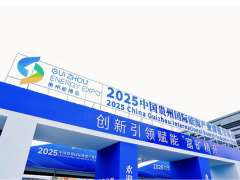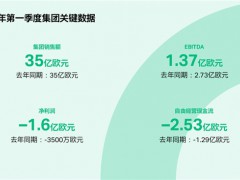據世界天然氣3月18日消息稱,咨詢公司伍德麥肯茲周四表示,撒哈拉以南非洲地區是全球能源利用率最低的地區,該地區需要3500億美元的投資,其中五分之一需要脫離電網,才能在二十一世紀十年末實現普及電力。
根據非洲開發銀行集團的數據,超過6.4億非洲人無法獲得能源,這相當于非洲國家的電力接入率僅略高于40%,是世界上最低的。該銀行集團表示,撒哈拉以南非洲(不包括南非)的人均能源消耗為 180 千瓦時,而美國和歐洲的人均能源消費量分別為1.3萬千瓦時和6500千瓦時。
該公司稱,非洲電氣化是能源行業未來面臨的重大挑戰之一,而實現這一目標的方式可能會塑造電力公司的下一代商業模式。
能源轉型實踐的首席分析師 Benjamin Attia 說:“能源的未來可能在非洲形成。”
Attia補充說:“撒哈拉以南非洲公用事業商業模式的發展,無論是電網上還是電網外,都將從根本上改變全球電力需求的軌跡,對能源轉型至關重要。”
非洲持續缺乏電力供應的部分原因是到目前為止基礎設施投資嚴重不足。此外,非洲大部分公用事業都在虧損經營,沒有資金來擴大和改善電力供應。
面對這些挑戰,非洲可以利用可再生能源和創新商業模式成本下降的機會。
Attia說:“分散的、自下而上的太陽能和儲能電網不僅可以改變撒哈拉以南非洲的能源未來,而且為全球下一代公用事業商業模式的思考提供了重要的教訓。”
據估計,非洲擁有1000吉瓦太陽能的巨大潛力。然而,截至 2020 年,其實際裝機容量僅為 10.58 吉瓦。
曹海斌 摘譯自 油價網
原文如下:
Africa’s Electrification Needs $350 Billion Investment By 2030
Sub-Saharan Africa, the region with the lowest universal access to energy, needs $350 billion in investments, one-fifth of which needs to be off the grid, to achieve universal electricity access by the end of this decade, Wood Mackenzie said on Thursday.
According to the African Development Bank Group, more than 640 million Africans have no access to energy, which corresponds to an electricity access rate for African countries at just above 40 percent, the lowest in the world. Per capita consumption of energy in sub-Saharan Africa, excluding South Africa, is 180 kWh, compared to 13,000 kWh per capita in the United States and 6,500 kWh in Europe, the bank group says.
Electrifying Africa is one of the big challenges ahead for the energy industry, and the way it is being pursued could shape the next generation of the business models of power companies, according to WoodMac.
“The future of energy may be forged in Africa,” said Benjamin Attia, a principal analyst with Wood Mackenzie’s Energy Transition Practice.
“The evolution of sub-Saharan Africa’s utility business model, both on and off the grid, will fundamentally reshape the trajectory of global electricity demand and will be essential to the energy transition,” Attia added.
The persistent lack of electricity access in Africa is partly due to massive underinvestment in infrastructure so far, according to WoodMac. In addition, a large part of the utilities in Africa are operating at a loss and do not have the capital to expand and improve the power supply.
Faced with these challenges, Africa could take advantage of the decline in the costs of renewable energy and of innovative business models, Wood Mackenzie said.
“Decentralised, bottom-up, solar-and-storage grids could not only transform sub-Saharan Africa’s energy future but carry important lessons for the next generation of thinking on utility business models globally,” WoodMac’s Attia said.
Africa is estimated to have massive potential for 1,000 GW of solar power. Its actual installed capacity as of 2020, however, was barely 10.58 GW.?
免責聲明:本網轉載自其它媒體的文章及圖片,目的在于弘揚石化精神,傳遞更多石化信息,宣傳國家石化產業政策,展示國家石化產業形象,參與國際石化產業輿論競爭,提高國際石化產業話語權,并不代表本網贊同其觀點和對其真實性負責,在此我們謹向原作者和原媒體致以崇高敬意。如果您認為本站文章及圖片侵犯了您的版權,請與我們聯系,我們將第一時間刪除。







